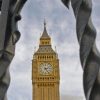A major Australian business group has called on the Morrison government to take China to the world trade umpire, saying attempted talks have failed to resolve the widening dispute with Australia’s largest trading partner.
As seven export sectors braced for potential trade bans, and with ministerial level contact still frozen, the Australian Industry Group told Guardian Australia businesses would have no choice but to look for other markets “if China continues to turn its back on Australian goods and services”.
While the trade minister, Simon Birmingham, described the new sanctions as “rumours” that have not been officially confirmed, Australian trade officials have urged exporters to expand into other markets because the rocky relationship between the two countries is not likely to improve in the near future.
In an editorial, the state-run China Daily warned that Australia would “pay tremendously for its misjudgment” if it continued to back the US government’s efforts to contain China.
The paper urged Australia to “steer clear of Washington’s brinkmanship with China before it is too late”, saying that if Canberra went out of its way to be hostile to Beijing it “will be a decision Australia will come to regret as its economy will only suffer further pain”.
A dysfunctional America helps China – but hurts Australia and our region | Natasha Kassam
Read more
The Labor leader, Anthony Albanese, said it was time for Scott Morrison to “act like the prime minister, not the prime observer” and move quickly to help Australian exporters who fear new trade bans affecting wine, lobster, sugar, coal, timber, barley and copper.
“It’s not good enough to say, ‘Well, no one will take our calls’ while our trade continues to deteriorate,” Albanese said.
“The government needs a plan to deal with this issue, because it has real-world consequences for Australian jobs, for Australian businesses and for the Australian economy.”
If these new bans eventuate, they would represent the latest in a series of trade actions taken by China amid tensions over a range of issues, including Australian investigations into alleged foreign interference, criticism of China over human rights abuses, and the Morrison government’s early call for a global Covid inquiry.
Australian barley exports to China have already largely stopped because of prohibitive 80% tariffs imposed in May, based on claims the product had been “dumped” at artificially low prices and because of unfair subsidies.
The Australian government says it reserves its right to challenge that decision via the World Trade Organization and it is understood to have raised its concerns at a standard WTO committee meeting last week.
Innes Willox, the chief executive of the Australian Industry Group, said businesses would prefer Australia to have strong high-level connections with China, which accounts for 33% of Australia’s total exports, but “when talks break down we need to rely on the independent umpire, the WTO”.
“China and Australia have long been united in advocating for the multilateral trading system and now might be the time to take our disagreements to that forum,” he said.
“Businesses are always looking to diversify but the reality is that no other market has the size or robust demand of China, which is why Australia is just one of 125 countries who count China as their largest trading partner.”
Dr Jeffrey Wilson, the research director of the Perth USAsia Centre, said referring the trade dispute to the independent umpire was a credible option for Australia, even though it could take some time for a decision.
Wilson said he believed Australia had a “very good chance of success” in the barley, cotton and coal cases. The latter two products have reportedly faced disruptions because Chinese authorities issued verbal instructions to certain businesses last month to stop buying from Australia.
The China challenge: ‘To get a sense of how bad relations might get, look back to Menzies’
Read more
On the eve of the potential new trade bans, Austrade officials held a phone hook-up with farming and business representatives on Thursday, the contents of which were first reported by the Australian newspaper.
“Quite frankly they didn’t tell us anything we didn’t know,” said a source from one of the affected sectors who was on the call.
“They couldn’t confirm any facts [about the potential new trade disruptions]. They basically said the relationship with China is poor and it doesn’t look like any chance of that improving in the foreseeable future.
“The main thing was you need to look to diversify your markets.”
It is understood officials also urged exporters to ensure they complied with all labelling and other technical requirements because there was likely to be increased scrutiny at Chinese ports.
While the message was consistent with the government’s previous public calls for trade diversification and warnings that the risk of doing business with China was increasing, it reflects heightened anxiety about how long the trade tensions may last.
Describing the phone hook-up as routine, Birmingham said the government was talking to sectors that were “concerned, understandably, given the media speculating and the rumours circulating about their trade with China”.
Birmingham said the government realised “that the best environment for our exporters to operate in is one in which they have the maximum number of choices available to them” so businesses had the opportunity “to pivot”.
That was why, the trade minister stressed, the government had either signed or was pursuing trade agreements with Japan, South Korea, Vietnam, Canada, Mexico, Indonesia, the European Union and the United Kingdom, along with the Trans-Pacific Partnership.
Birmingham said it was “disappointing that Chinese authorities refuse to engage” in talks at a ministerial level but Australia “stands willing to have that type of mature, responsible dialogue”.
“I note that Chinese authorities have given assurances, both publicly through their media spokespeople, and privately, that there is no concerted action of discrimination against Australia, and we want to make sure that they live up to those commitments.”
How much is China’s trade war really costing Australia?
Read more
Guardian Australia understands while there has been no official confirmation of customs blockages in the targeted sectors, the uncertainty has already led some exporters to suspend or delay shipments.
China’s foreign ministry rebuffed Birmingham’s call for clarity after the state-run Global Times appeared to confirm that China had “halted seven categories of Australian goods from the market” but did not provide any further details.
The foreign ministry spokesperson, Wang Wenbin, offered a general comment on Thursday that any measures on foreign imports were “in line with Chinese laws and regulations and international customary practices”.
“They protect the safety of consumers and the legitimate rights and interests of domestic industries, and are consistent with the free trade agreement between China and Australia,” Wang said.























































Свежие комментарии